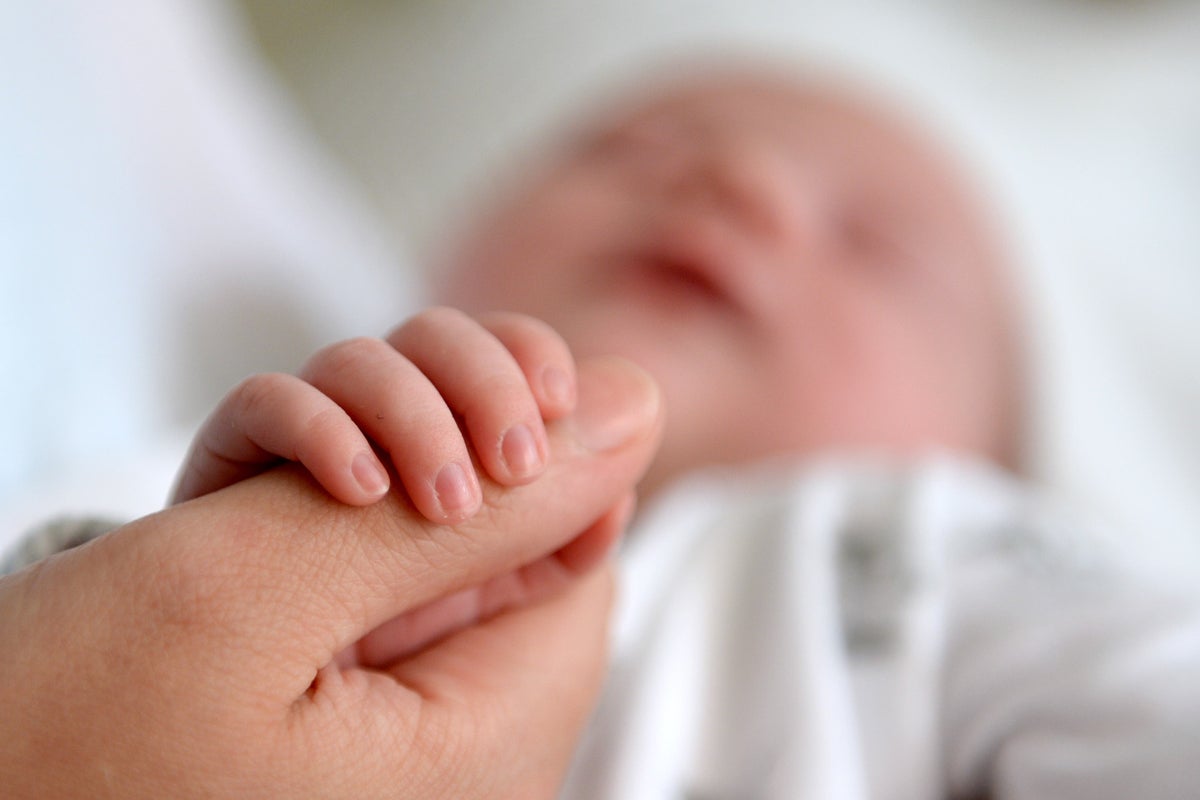
Parents are being urged to support research into a respiratory virus that is the leading cause of infant hospital admissions in the UK.
RSV (Respiratory Syncytial Virus) is a common seasonal virus that affects 90% of children worldwide before the age of two.
While some babies experience mild cold-like illness, for others, infection can lead to more severe lung problems such as bronchiolitis and pneumonia.
It is estimated that around 30,000 babies and children under five are admitted to hospitals in the UK every year due to RSV.
Around 12,000 babies up to 12 months old in the UK will take part in the Harmonie study to assess the effectiveness of Nirsevimab.
Nirsevimab is a monoclonal antibody – man-made proteins that act like natural human antibodies in the immune system – which has already been proven to be safe in previous clinical trials involving 4,000 babies.
It was approved by the UK’s Medicines and Healthcare products Regulatory Agency (MHRA) on Wednesday for the prevention of RSV in babies during their first RSV season, following approval by the European Commission earlier this month.
The trial will also include another 8,000 babies from France and Germany.
Infants taking part will be randomly assigned into one of two groups: one group will receive a single dose of Nirsevimab via injection while the other will not.
The Harmonie study is looking at how strongly babies can be protected from illness caused by RSV infection through a single antibody dose— Dr Simon Drysdale
All babies will have virtual follow-up appointments.
If found to be effective, the Nirsevimab jab could act as a preventative treatment for thousands of children in the UK and around the world and reduce hospital admissions, the experts said.
Dr Simon Drysdale, consultant pediatrician in infectious diseases at St George’s University Hospital NHS Foundation Trust and co-chief investigator of the study, said: “The Harmonie study is looking at how strongly babies can be protected from illness caused by RSV infection through a single antibody dose, which acts in the same way as antibodies in our own bodies but is targeted specifically to fight RSV.”
Dr Simon Royal, primary investigator for the Harmonie study, NIHR National Specialty Lead for Primary Care, Honorary Assistant Professor at the University of Nottingham Medical School, added: “We would encourage parents to support this important study, with the knowledge that they will be making an invaluable contribution to the health of babies now and in the future.”
The Harmonie study is a collaboration between Sanofi, its partner AstraZeneca, and the National Institute for Health and Care Research (NIHR).
Those looking for information can visit www.rsvharmoniestudy.com







